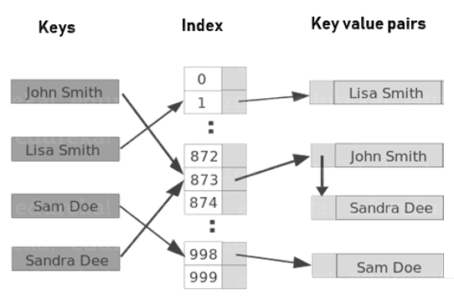Why Are Strings Immutable in Java? Comprehensive Overview for Beginners
Why Are Strings Immutable in Java? Comprehensive Overview for Beginners
Blog Article
What Is Unalterable Strings and Exactly How It Works
In the world of programs, understanding the idea of unalterable strings is extremely important for developing robust and protected applications. Immutable strings describe strings that can not be modified after they are developed, guaranteeing information honesty and predictability within the code. This basic principle plays a vital role in different programs languages and supplies an unique strategy to dealing with data. By discovering the complexities of exactly how immutable strings operate, one can uncover a world of benefits and opportunities that can raise the high quality and effectiveness of software program advancement.
The Fundamentals of Unalterable Strings
Immutable strings, as an essential idea in programming, are character sequences that can not be altered once they are produced. This implies that once a string is appointed a value, that worth can not be changed. In languages like Python and Java, strings are immutable objects, resulting in various implications in terms of memory monitoring and information integrity.
Among the key benefits of immutable strings is that they supply a sense of safety and security in data manipulation. Given that the material of an immutable string can not be modified, it ensures that the initial information remains undamaged, minimizing the risk of unplanned modifications during program implementation (Why are strings immutable in Java?). This home additionally simplifies debugging procedures, as designers can rely on that once a string is specified, its value will certainly not be accidentally altered
Furthermore, immutable strings assist in reliable memory use. When a brand-new string is developed based on an existing one, as opposed to changing the initial string, the brand-new worth is stored independently. This strategy improves performance by decreasing memory fragmentation and simplifying memory allocation procedures. Generally, understanding the basics of immutable strings is crucial for grasping programming ideas and maximizing code effectiveness.
Advantages of Immutable Strings
Structure upon the safety and security and performance benefits of unalterable strings, their advantages include improving code reliability and streamlining concurrent programming jobs. By being unalterable, strings can not be changed after development, which removes the threat of unexpected modifications in the data they keep. This intrinsic immutability ensures that once a string is produced, its value remains consistent throughout the program's execution, decreasing the possibilities of pests triggered by unexpected changes.
Additionally, immutable strings add to code integrity by making it easier to reason about the state of a program. Because strings can not be altered, programmers can trust that a string will certainly always hold the very same worth, streamlining debugging and upkeep initiatives. This predictability causes a lot more steady and trustworthy codebases.

Application in Shows Languages
Within various programming languages, the incorporation of immutable strings is an essential element that impacts just how data is managed and controlled within code frameworks. The application of unalterable strings differs across different shows languages, with each language using its own devices to sustain this concept.

In comparison, languages like C and C++ do not have built-in support for unalterable strings. Designers in these languages need to manually apply immutability by imposing guidelines within their code to stop direct have a peek at this site alterations to string items.
Best Practices for Working With Immutable Strings
When managing unalterable strings in programs languages like Java and Python, adhering to best methods makes certain effective and safe information control. One of the essential best techniques is to utilize StringBuilder or StringBuffer rather than directly controling strings, especially when dealing with extensive concatenation procedures. These courses offer mutable options for string manipulation, helping to avoid unneeded memory allowances and boosting efficiency.
Furthermore, when functioning with delicate data such as passwords or API tricks, it is important to prevent Click Here keeping them as plain message in unalterable strings. Using secure storage systems like char arrays or specialized libraries for taking care of sensitive info helps reduce safety threats connected with immutable strings.
Real-world Applications and Examples
Discovering sensible executions of immutable strings in different sectors exposes their substantial influence on data stability and system dependability. In the healthcare industry, unalterable strings play an important function in making sure the security and discretion of individual data. By stopping unauthorized modifications to delicate information such as clinical documents and prescriptions, unalterable strings aid maintain conformity with strict personal privacy policies like HIPAA.
Economic establishments likewise gain from the unalterable nature of strings to boost the security of consumer data and transaction records. Immutable strings aid avoid fraud and unauthorized alterations to monetary details, providing a durable protection versus cyber risks and making sure the depend on and self-confidence of customers.

Conclusion
Finest practices for working with immutable strings include preventing straight alterations and utilizing approaches that return new string things. Real-world applications of immutable strings consist of data security, caching, and string manipulation jobs.
Unalterable strings refer to strings that can not be altered after they are created, making certain information stability and predictability within the code. When a brand-new string is produced based on an existing one, instead than changing the initial string, the new worth is stored independently.In languages like Java and Python, strings are immutable by default, suggesting that as soon as a string try these out object is developed, its worth can not be altered - Why are strings immutable in Java?. Ideal practices for functioning with unalterable strings consist of avoiding direct adjustments and making use of approaches that return brand-new string objects. Real-world applications of immutable strings consist of information file encryption, caching, and string adjustment tasks
Report this page